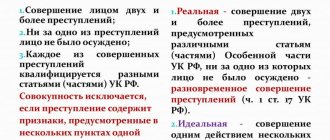ST 359 of the Criminal Code of the Russian Federation.
1. Recruiting, training, financing or other material support of a mercenary, as well as his use in an armed conflict or military operations, is punishable by imprisonment for a term of four to eight years, with or without restriction of freedom for a term of up to two years.
2. The same acts committed by a person using his official position or in relation to a minor are punishable by imprisonment for a term of seven to fifteen years with a fine in the amount of up to five hundred thousand rubles or in the amount of the wages or other income of the convicted person for a period of up to three years or without it and with or without restriction of freedom for a period of one to two years.
3. Participation of a mercenary in an armed conflict or hostilities is punishable by imprisonment for a term of three to seven years, with or without restriction of freedom for a term of up to one year.
Note : A mercenary is a person who acts for the purpose of receiving material compensation and is not a citizen of a state participating in an armed conflict or hostilities, does not reside permanently on its territory, and is not a person sent to perform official duties.
Mercenary from the point of view of the law
By providing for punishment for mercenary activities, the legislation gives a precise description of the mercenary.
This is someone who agrees to participate in armed competition and is in no way connected with a given state:
- is not its citizen;
- does not live in the territory of the state as a permanent resident;
- is not in military service in a country participating in the conflict;
- The main motivation for action is to obtain significant, usually financial, benefits for oneself personally.
The qualities listed above that characterize a person as a mercenary are indicated in the protocols of the convention signed in Geneva on August 12, 1949. The main theme of which was the protection of those who suffered from hostilities.
The same criteria are used in the legislation of the Russian Federation when assessing a person’s actions as mercenary.
Unlike a combatant who acts within the bounds of the law, a mercenary:
- wears a special uniform;
- has a special insignia;
- carries a weapon openly;
- has an official leader;
- complies with the laws of war.
A mercenary is equated to a war criminal by the Criminal Code of the Russian Federation. Accordingly, if it is proven that a person is a mercenary, he will be punished.
International law
The key provisions relating to this issue are defined in the Declaration of International Legal Principles relating to Friendly Relations and Cooperation among States. According to the document, each power is obliged to refrain from creating or encouraging the organization of armed bands or irregular forces to invade other territories. Thus, a foreign legion consisting of recruited citizens would be considered a violation of the Declaration adopted in accordance with the UN Charter. It is worth noting that Russia does not participate in the 1989 Convention. Note to Art. 359 of the Criminal Code of the Russian Federation is formulated on the basis of the provisions of the Additional Protocol of 1977.
Trial
When detaining a person whose activities are regarded as mercenarism, the court will need to find out whether it really was such.
Since volunteers and combatants are also not citizens of the warring states, but participating in the war legally, have rights stipulated by the states. When captured by the enemy side:
- they receive prisoner of war status;
- he must be treated accordingly.
For example, if an airplane pilot is descending by parachute, you cannot shoot at him. They should be asked to surrender. The mercenary cannot count on this in any way, since his activities are clearly criminal.
Trials on Section 359 charges have traditionally taken place without a jury. But, if the charge is related to parts 1 and 2 of this article, then at the request of the accused, the presence of jurors at the trial is possible. Those accused under this article have the right to have their interests defended by a lawyer.
Subjective part
Punishment under Art. 359 of the Criminal Code can be applied to sane citizens from the age of sixteen. In Part 2 of the commented norm, the subject is special. It is a person who commits a crime using his official status. Any official, including a civil servant, can act as such. In addition, part two of the article specifies a qualifying feature - the commission of a crime against minors. We are talking about persons who have not reached 18 years of age. The use of official status refers to such actions that are committed contrary to official interests. According to Part 2, subjects performing management functions in a non-state company and serving in local government structures are also held liable.
Commentary on Article 359 of the Criminal Code of the Russian Federation
Commentary edited by Rarog A.I.
1. Crime under Part 1 of Art. 359 of the Criminal Code, can be expressed in one of the following actions:
a) recruitment of mercenaries;
b) organizing training for mercenaries;
c) financing of mercenaries;
d) other material support for mercenaries;
e) the use of mercenaries in armed conflict or hostilities.
2. The content of the concept of a mercenary was first disclosed in Art. 47 Additional Protocol I “On International Armed Conflict” to the Geneva Conventions for the Protection of Victims of War. In December 1989, the UN adopted the Convention on the Prohibition of the Recruitment, Use, Financing and Training of Mercenaries. It expanded the concept of mercenaries to include persons not only directly involved in armed conflicts, but also recruited to participate in pre-planned acts of violence aimed at overthrowing the government of a state, undermining its constitutional order or violating its territorial integrity and inviolability. In accordance with the note to the commented article (adopting the international legal definition of a mercenary), in order to be considered a mercenary, a person must be characterized by the following characteristics:
a) must act in order to obtain material reward;
b) must not be a citizen of a country involved in the conflict;
c) must not permanently reside in the territory of such a country;
d) cannot be classified as persons sent to perform official duties by a state that is not a party to the conflict.
3. Material remuneration means the receipt by a mercenary of any material assets (in monetary or other terms) for his activities.
4. A person who has housing, work, family in that country, as well as a residence permit and is legally present in its territory is considered to be permanently residing on the territory of a country participating in the conflict.
5. Military personnel of non-belligerent states sent to perform official duties (military instructors, advisers sent to other states on the basis of bilateral agreements on assistance in training military personnel, etc.) should be distinguished from mercenaries.
6. Recruitment includes activities aimed at attracting one or more persons to participate in an armed conflict as a mercenary. It can be expressed in the registration of those interested, campaigning, referral to a place of training, deployment, etc.
7. Training is the activity of preparing an already recruited mercenary (or mercenaries) to participate in armed conflict or hostilities. It can be expressed in learning how to handle weapons, methods of conducting military operations, learning how to conduct sabotage work, organizing special schools, camps, bases, etc.
8. Financing of mercenaries is the creation of a material base for the training, recruitment and use of mercenaries in an armed conflict or hostilities by providing mercenaries with funds (opening bank accounts for persons who are mercenaries, paying them monetary or other remuneration, allocating funds for the maintenance of mercenaries etc.).
9. Other material support for mercenaries may be expressed in the provision of military or other property, weapons, equipment, ammunition, uniforms, etc.
10. The use of mercenaries in an armed conflict or hostilities means their direct involvement in combat operations or actions of a military nature, both in the area of military operations and beyond (sending to the place of military operations, directing the actions of formations, their units or individual mercenaries, etc.).
11. The crime is completed from the moment of commission of any of the actions specified in the disposition of the article.
12. Liability under Part 1 of Art. 359 of the Criminal Code may be borne by a person who has reached the age of 16 years and who acted intentionally.
13. The use of official position by a guilty person (Part 2 of the commented article) is understood as an act committed contrary to the interests of the service by both an official and a non-official civil servant or employee of local government bodies, as well as a person performing managerial functions in a non-governmental organization, aimed for the recruitment, training, financing, and other material support of a mercenary or his use in an armed conflict or hostilities.
14. Personal participation in an armed conflict or hostilities of a person recruited as a mercenary means direct participation in the preparation, planning or conduct of hostilities and military operations.
Penalties
Article 359 for mercenarism prescribes punishment exclusively in the form of imprisonment. The minimum sentence for the first part is four years, the maximum is 8 years. As an additional type of punishment, restriction of freedom for up to two years can be used.
Food for thought
Mercenary activity is a crime against peace and security, as is ecocide, an environmental crime. Despite calls from the public and the UN to take care of the planet, certain groups of people use the Earth's resources for their own purposes.
An official who commits actions that fall under the crime of mercenaryism is punished by imprisonment for a minimum of seven years and a maximum of fifteen years. In this case, an additional type of punishment may be a fine (up to 500,000 rubles or in the amount of three years’ salary or other income for the same period) or restriction of freedom for a period of 1 to 2 years.
The mercenary himself for participation in wars and armed conflicts is also punishable by imprisonment for a minimum of three years, and a maximum of seven years. Additionally, restriction of freedom of up to 1 year may be applied.
The concept of restriction of freedom implies the imposition by the court of certain restrictions for the period specified in the sentence after serving the main type of punishment (prohibition on leaving the house at a certain time, visiting gambling establishments, drinking establishments, etc.).
Under this article of the Criminal Code of the Russian Federation, a person who is recruited to carry out certain actions aimed at overthrowing the current government, undermining territorial integrity, the constitutional foundations of the activities and functioning of the state can be held accountable. Such principles are pursued by the Syrian terrorist organization Islamic State, which is banned almost all over the world.
Composition specifics
Mercenary activity is condemned not only as an ordinary crime, but also as an ideological one. This phenomenon gives rise to individuals in society who are capable of mass murder, terrorism, and other crimes if they expect to receive large profits for these acts. At the same time, they are not at all interested in the moral side of the issue.
The main point that is important when characterizing an activity as mercenary is the presence of significant material rewards to encourage those who entered into hostilities.
Material rewards include:
- cash;
- an account opened in a bank;
- just a promise of similar reward.
Financial support, recruitment, training, acquisition of weapons and other actions necessary for hiring and maintaining a mercenary are also criminally punishable.
According to the Criminal Code of the Russian Federation, mercenarism can be presented in any form:
- organization;
- education;
- performing combat missions;
- material support.
Crime must be punished. However, the type and degree of punishment may vary.
Recruitment and its signs
Mercenary activity is not only illegal participation in a military conflict, but also the organization of actions to attract persons to such participation, recruitment.
Today's legislation classifies the following activities as recruitment:
- Recruitment for service to participate in hostilities.
- Conclusion, verbally or in writing, of some kind of agreement on the participation of the subject of recruitment in armed attacks.
- Promoting people to sign such an agreement.
- Referring those who want to break the law to special bases.
All elements of the activity do not need to be present for someone to be found guilty of recruitment.
Proof of at least one of them implies criminal liability. Punishment also awaits those who organize the training of recruits. At the same time, the commentary to the article stipulates which actions are recognized as training:
- psychological preparation;
- work on a person’s physical condition;
- learning to use weapons.
Assisting in obtaining specific military knowledge for illegal participation in clashes is also called a violation of the law and is punishable by criminal law.
Judicial practice under the article
Proceedings under the article take place in a traditional court without a jury, but if parts 1 and 2 are applied, then the accused can petition for the presence of such members of justice.
Examples of cases:
- Citizen K. was recruited by representatives of another state to carry out military operations in conflict territories. He agreed because he had a selfish motive. During an armed conflict, the other side captured him, and since he turned out to be of the same citizenship, his status was determined to be a mercenary. He was sent to court. For his participation in the war, he received a fine and 5 years in prison.
- Citizen V. was recruited by another state to train their military in biological weapons tactics. She was a microbiologist, so she knew exactly what the consequences would be. She had to agree because she was threatened, but at the first opportunity she surrendered to her authorities. Since her actions were illegal, but she did not want to carry them out, she managed to avoid criminal punishment.
- Citizen K., at the age of 16, wanted to go to the conflict territories of Donbass. He entered Ukraine, became a mercenary and fought against the militias. They managed to capture him, but since he was a mercenary, he was not given special status, but was sent to court. Because he was a minor, the court wrote off part of his sentence, but he still received a fine and 3 years in prison.
What decisions are made under Article 359?
The article almost never exonerates criminals, since their actions are especially serious. In 2021, there were 3 cases on it, all under the 3rd part. As a result, all criminals received several years in prison.
What are aggravating and mitigating circumstances?
Crimes committed using one's official position may increase criminal liability under this article. It is possible to mitigate the circumstances if the mercenary himself voluntarily surrenders to the authorities and continues to cooperate with them.
Differentiation of definitions
It is necessary to distinguish mercenaries from employees of non-belligerent countries sent on business trips to perform official tasks determined by bilateral agreements. These may be advisers, instructors, consultants, and other entities who provide the necessary assistance during the training of military personnel and training them in military affairs. In accordance with the Federal Law “On Military Duty,” for example, foreigners also perform service under a contract. These subjects are given the status established by Federal Law No. 76.







